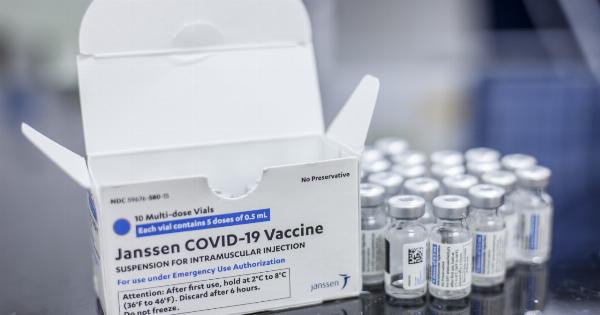Psoriasis is a chronic autoimmune condition that affects the skin, causing red, scaly patches. The severity of this condition varies and can range from mild to severe.
Some people with psoriasis may experience symptoms that are debilitating and affect their quality of life. Unfortunately, there is no cure for psoriasis, but there are numerous treatment options available to help manage symptoms and reduce inflammation. The following are some of the most common treatment options for psoriasis:.
Topical Treatments
Topical treatments are often the initial treatment option for those with mild to moderate psoriasis. These treatments are applied directly to the affected skin and can be effective in relieving symptoms such as inflammation, itching, and scaling.
The following are some of the most common topical treatments:.
1. Corticosteroids
Corticosteroids are a type of topical medication that help reduce inflammation and itching. They are available in different strengths and may be prescribed by a doctor in a cream, ointment, or lotion form.
Corticosteroids can be effective in treating psoriasis when used as directed, but they can cause side effects if used for a long time or over a large area of skin. Topical corticosteroids should not be used on the face, groin, or underarms.
2. Vitamin D Analogues
Vitamin D analogues are synthetic forms of vitamin D that can slow down skin cell growth and reduce inflammation. These medications are available as a cream or ointment and are typically applied once or twice a day.
Side effects of vitamin D analogues are usually mild and may include itching, skin irritation, and redness.
3. Retinoids
Retinoids are a type of medication that can help control cell growth and reduce inflammation. These medications are available in cream or gel form and are typically used for moderate to severe cases of psoriasis.
Retinoids should not be used during pregnancy.
4. Salicylic Acid
Salicylic acid is a type of medication that can be effective in treating psoriasis by helping to soften and remove scales.
This medication is available in shampoos, lotions, and creams and may be used alone or in combination with other topical treatments. Salicylic acid can cause skin irritation, especially if used over a large area of skin, and should not be used during pregnancy.
Phototherapy
Phototherapy involves exposing the skin to ultraviolet light under medical supervision. This treatment can help slow down the growth of skin cells and reduce inflammation.
Phototherapy can be effective in treating psoriasis in many cases and can be used alone or in combination with other treatments. There are two main types of phototherapy:.
1. UVB Phototherapy
UVB phototherapy involves exposing the skin to UVB light for a set amount of time. This treatment can be performed in a doctor’s office or at home using a UVB light box.
Side effects of UVB phototherapy may include sunburn, skin dryness, and itching. This treatment should not be used during pregnancy.
2. PUVA
PUVA involves taking psoralen, a medication that makes the skin more sensitive to UV light, followed by exposure to UVA light. This treatment is typically performed in a doctor’s office and can be effective in treating psoriasis.
Side effects of PUVA may include skin redness, itching, and nausea. This treatment should not be used during pregnancy or by those with a history of skin cancer.
Systemic Medications
Systemic medications are a type of medication that are taken orally or injected and can help treat psoriasis throughout the body. These medications are typically reserved for severe cases of psoriasis that have not responded to other treatments.
The following are some of the most common systemic medications:.
1. Methotrexate
Methotrexate is a type of medication that can help slow down the growth of skin cells and reduce inflammation. It is typically taken once a week and should be used with caution as it can cause liver damage and other side effects.
Those taking methotrexate should have regular blood tests to monitor their liver function.
2. Cyclosporine
Cyclosporine is a type of medication that suppresses the immune system and can help reduce inflammation. It is typically used for short periods of time as it can cause side effects such as high blood pressure and kidney damage.
Those taking cyclosporine should have regular blood tests to monitor their kidney function and blood pressure.
3. Biologics
Biologics are a type of medication that are made from living cells and can help control the immune system. These medications are typically used for moderate to severe cases of psoriasis and can be effective in reducing symptoms.
Biologics are usually administered via injection and may cause side effects such as infections and allergic reactions. Those taking biologics should be monitored closely by their doctor.
Conclusion
Psoriasis is a chronic autoimmune condition that can be challenging to manage. There are numerous treatment options available, ranging from topical treatments to systemic medications.
It is important to work closely with a healthcare provider to find the best treatment plan for managing psoriasis symptoms.




























